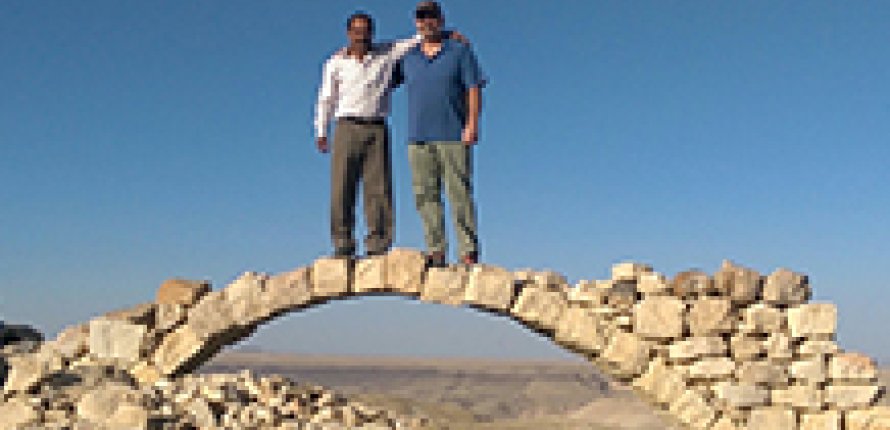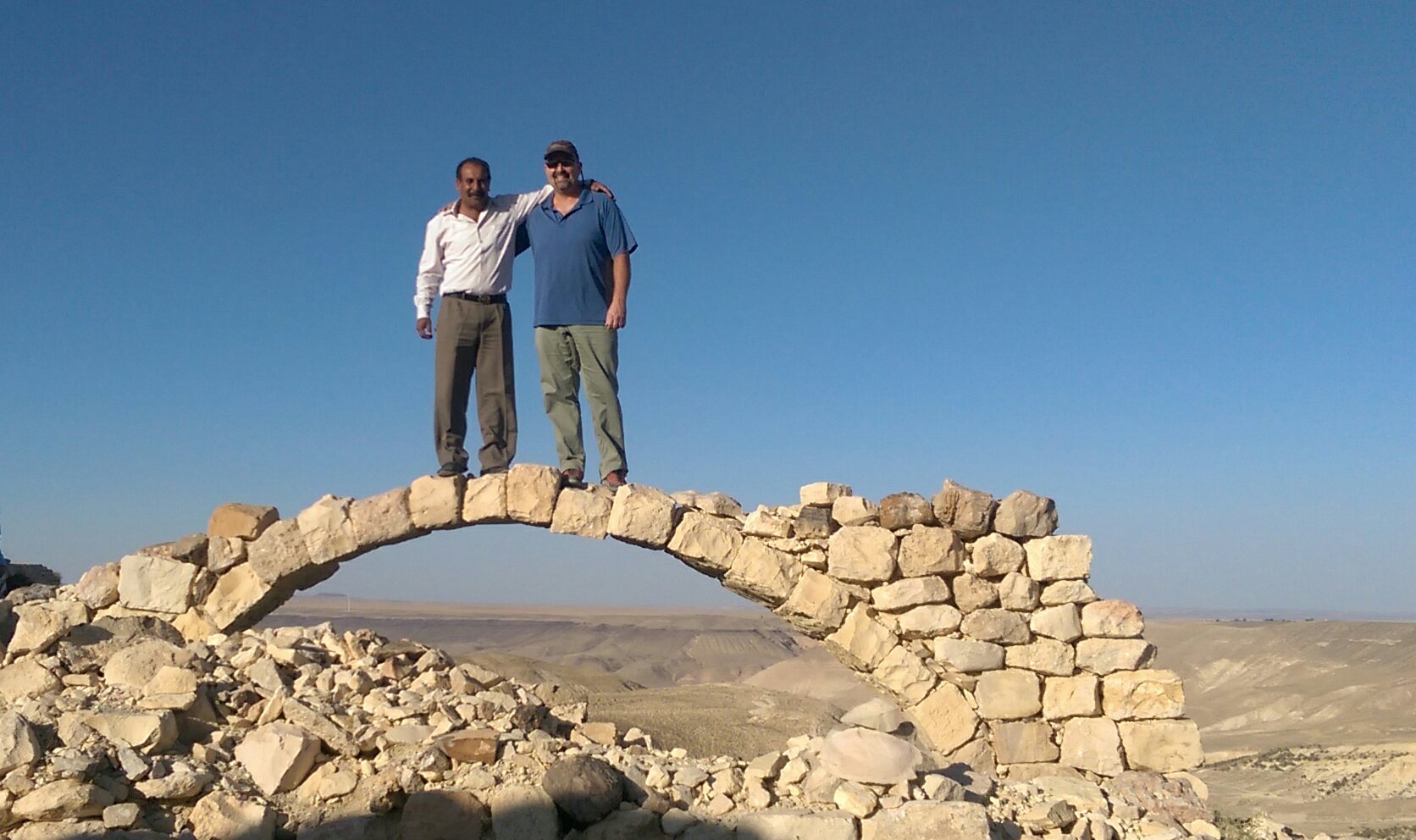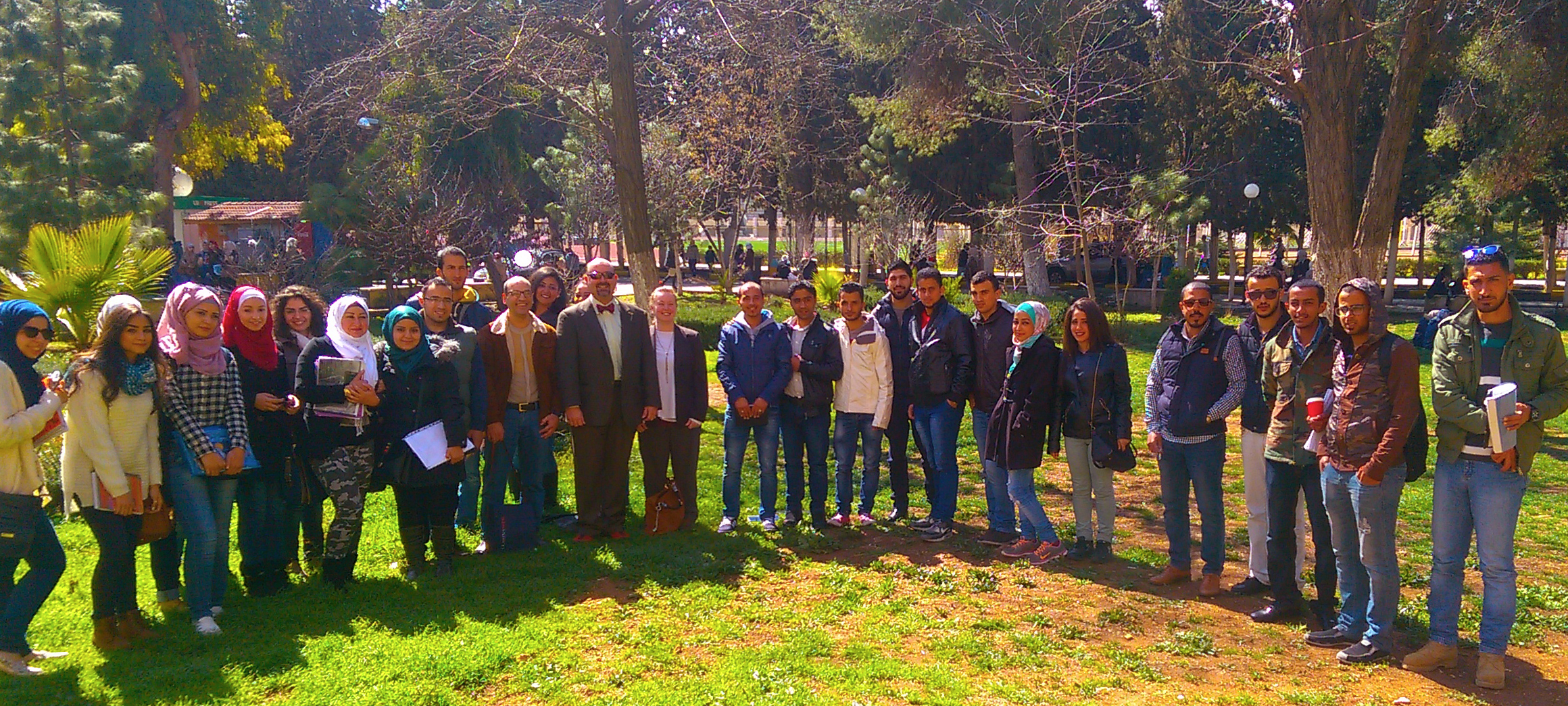Taking Full Advantage of Your Fulbright

Casey D. Allen, Associate Professor of Geography and Environmental Sciences at the University of Colorado Denver
2015-2016 Core Fulbright U.S. Scholar to Jordan
At the Fulbright Orientation in DC, our Director told us to make sure that we “explore beyond Amman”. Apparently, many Fulbrighters – and not just to Jordan, but other countries as well – stay close to their neighborhood. It’s easy to see why. Different culture, potentially different language, in-country commitments...even after spending several months in a foreign country you might not feel at home.
We (my wife, who accompanied me) took the Director’s admonishment to heart. Every chance we had, we explored. The more we saw and did, the more we fell in love with the Kingdom and its people. Spending time in the countryside allowed us to connect with peoples, places, and landscapes in a way not attainable otherwise.

It got a little expensive, renting cars, staying in hotels...even the (usually paltry) charges for visiting sites began to add up after a while. But you know what? It was worth every piaster. My personal blog remains filled with stories of our wonderful happenings there: from making new friends in the Highlands, Petra, or the neighborhood barber, to exploring off the map, discovering old desert castles, sharing our love of the Kingdom with the intrepid few friends and family members who visited us, and having deep discussions with locals about the influences of terrorism on tourism (Jordan’s livelihood), fantastic and fascinating experiences abounded. Locals were always quick to offer a spot of tea and just sit and relax.
Searching for an Eastern Desert fortress, for example, took me to, literally, the middle of nowhere. It was a beautiful, yet foreboding landscape. If my vehicle broke down, it would be a long, cold night and an even longer walk to find help. Driving through dry stream beds and across extremely rocky areas, I came upon a young man tending his goats. I asked if he knew of the fortress I was searching for, Qilat, and he just stared at me – Qilat is one way to say “castle” in Arabic, so I was asking him where the “castle-castle” was. After a few minutes, he said his father may know. He hopped in my truck and guided me up and down hills through the rocky landscape to their tent.
His father came out and greeted us. His son relayed my castle-castle message, and he nodded. After giving his son a few commands about the herd, he climbed in my truck and pointed. We drove for a solid hour and, in the late afternoon glow, finally arrived at the Qilat. It wasn’t a castle, per se, but rather a dam for the only nearby water source. With a lit cigarette in his mouth, he told me it was built by the Romans, and used by every subsequent people – Medieval caravans, Crusaders, and even the Ottoman during World War I. This being the only water source for several hours’ drive in any direction, I believed him. As he puffed away on his cigarette while overlooking the wadi below, I took my pictures, documenting the old and newly-built portions of the dam.
Then he took me around the dam to another spot. Here, he showed me evidence of the Roman occupation in the form of “Mancala” carvings – the game played with stones that Roman guards used to pass the time, and Bedouin kids still play, only using dried goat droppings. He also showed me several carvings, some of which looked Crusader, others that look Roman. That I’d found this place – with only a notation on an old map I’d found previously – elated me. But the fact that I was looking at carvings potentially thousands of years old alongside a Bedouin whose family has been in the area probably just as long, well...that was incredible.
Driving him back to their tent, he complimented me on driving like a Bedouin, and upon arrival, his son came out with a pot of tea. We shared a few cups, watching the sun sink lower and lower in the sky, just sipping our tea and being. As the sun began to disappear behind a hill, I thanked them and said goodbye. They invited me to stay with them for the night, but I politely refused, citing work I needed to do back in the city. We exchanged cell phone numbers, and they pointed me in the direction of Amman. I kept my compass true to the bearing and, after dark, connected with a road just off the main highway to Amman. A few days later, I got a call from him, inviting us out for a couple days to explore more of the area. Just one of many experiences like that. And just as delightful each time.

If my personal life has been enriched immensely by the Fulbright program, then the effect on my professional endeavors has been even more profound. And I don’t use that word lightly. From a teaching standpoint, not only am I more aware of the region than before I left, but I now feel a kind of kinship with Arab and Muslim students. I’m much more confident about my knowledge of the region, having been there, on the ground, and continually interacting with the region’s people. On the research front, I have new colleagues to collaborate with, new connections with organizations I didn’t even know existed, and an abundance of projects that will keep me busy for many years to come. While my research focus has not changed, my ability to expand that research into a new location has. The networking we achieved will continue to be fostered well into the future.
Fulbright is reciprocal learning at its best. Wherever your Fulbright takes you – like my amazing Director in Jordan – I admonish you to explore beyond your immediate locale. Seek out learning at every possible turn. Create opportunities to do so if need be. Get to know the people and landscapes of your host country. Visit the countryside, learn about their Arts and Culture, and share your own. In the end, when I consider all that we did, saw, and accomplished in a short six-months, the thing that speaks to my heart and soul – what really is the power of the Fulbright program – are the people. The local, permanent residents of Jordan: Bedouins who have been there for generations, refugees who travel thousands of miles for something better, and others who have decided to make the Kingdom their home. That’s what Fulbright is all about, that’s where the true power of the program rests: its ability to promote and foster mutual understanding and appreciation. Be sure to take advantage of it.
